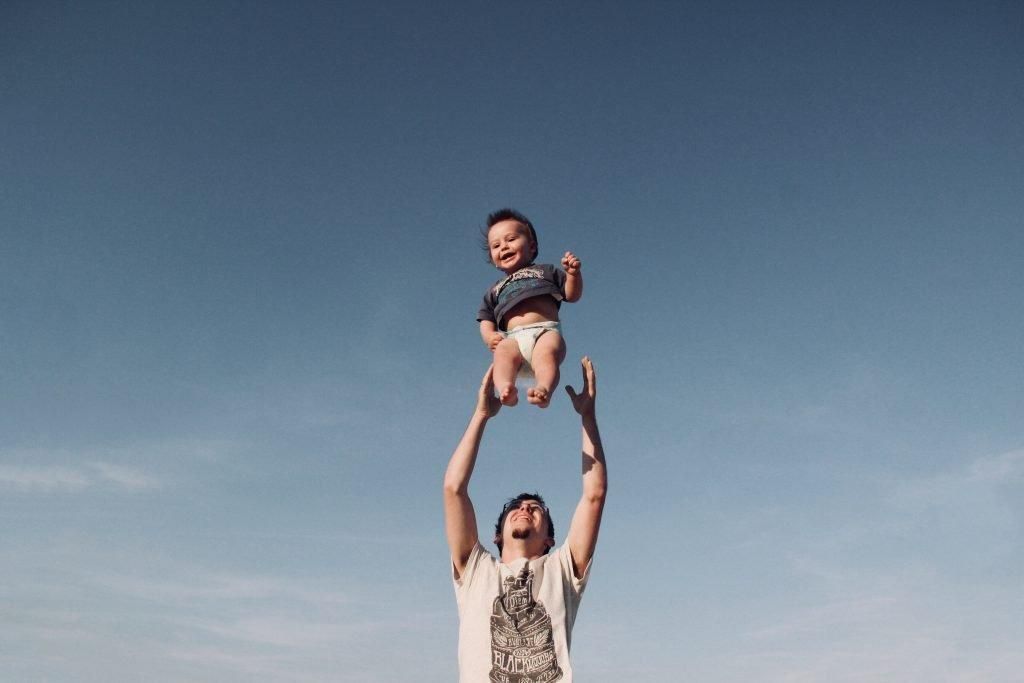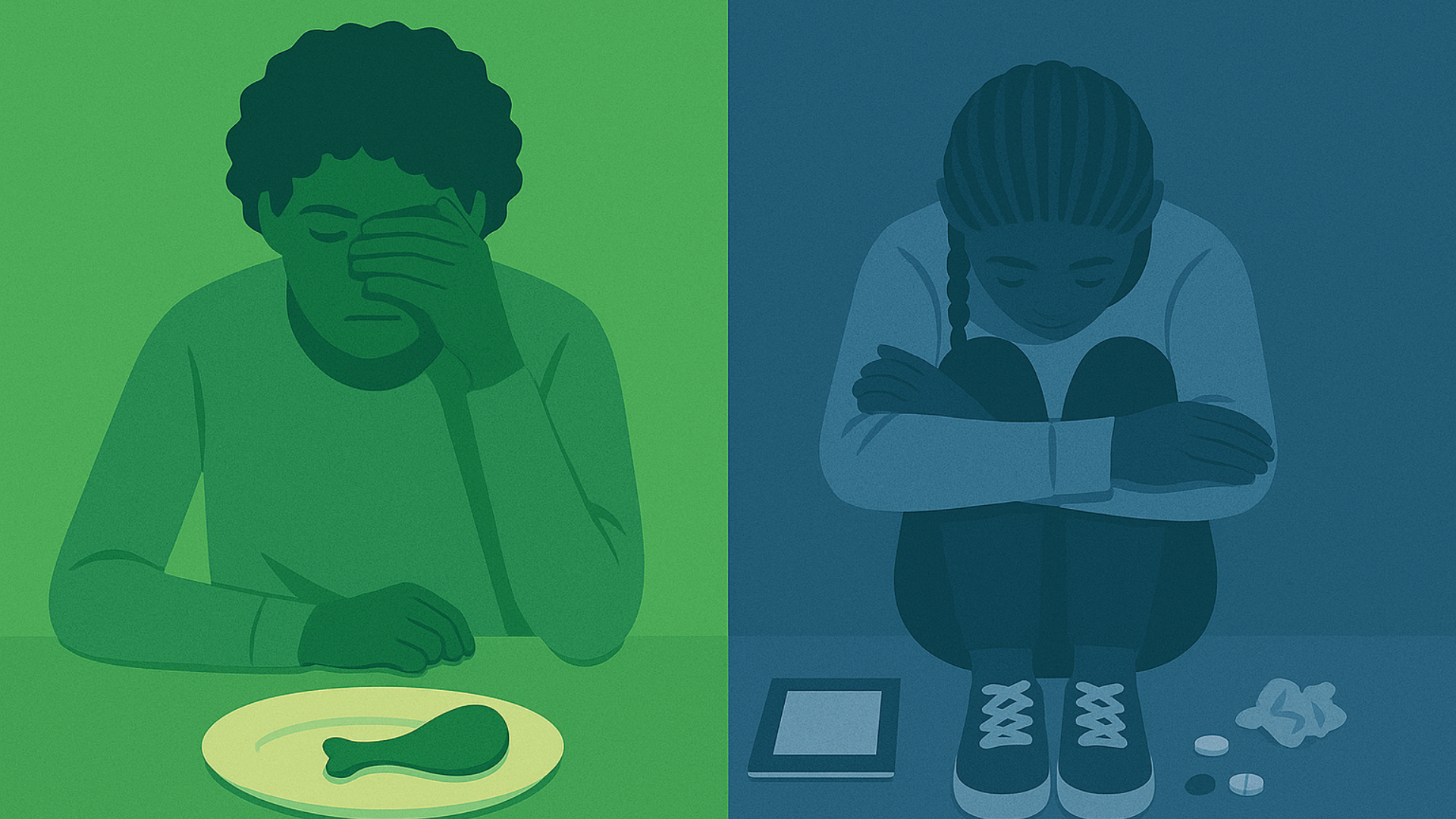How To Deepen Your Bond With Your Baby Through Mindful Movement

By Thrive Reno’s Director of Nursing, Liz Lass, RN, CEDRN, CPT
Mindful movement is ingrained into Thrive’s culture. As Thrive Reno’s Director of Nursing and a certified personal trainer, I work with our mindful movement specialists to intertwine evidence-based therapies with intentional movement to help heal mental and behavioral health struggles. So, it’s only natural that we encourage new parents of all genders to engage in mindful movement with their babies to promote the wellbeing of all. Doing so can help strengthen parent-baby bonds while also creating an enjoyable moment for calming reflection.
WHAT IS PARENT-BABY MINDFUL MOVEMENT?
Simply put, parent-baby mindful movement is any kind of intentional body movement that feels good to you and your baby. Mindful movement can be practiced on your own , with your baby (or babies), and with older children.
All parents can benefit from moving mindfully with their babies. Because the movements are tailored to different parenting styles as well as each babies’ temperament and developmental stage, parent-baby mindful movement can vary drastically between families. Activities may include walking, bike riding, dancing, and yoga — among many others.
WHEN TO BEGIN PRACTICING PARENT-BABY MINDFUL MOVEMENT
Parents can begin practicing mindful movement with their babies as soon as they feel ready. A person’s personality, preferred activity level, and experiences during the perinatal period are all factors that may affect the timing. Some parents may feel ready to move within a couple of days after a baby is born, while others may not feel ready until six weeks postpartum or longer. Either approach is acceptable and beneficial — as long as it’s based on mindful awareness of your body’s signals. Additionally, before beginning any intentional movement, parents should discuss their plans with their physician and obtain medical clearance.
BENEFITS OF PARENT-BABY MINDFUL MOVEMENT
Incorporating mindful movement into your relationship with your baby is a powerful form of self-care. Moving your body and your baby’s body in a way that you both enjoy can help relieve stress and anxiety, and sharing the experience with your baby can deepen your sense of connection to each other.
INCORPORATING PARENT-BABY MINDFUL MOVEMENT INTO YOUR LIFE
As stated, parent-baby mindful movement is any kind of intentional movement that you and your baby find pleasurable. Parents have access to many different kinds of equipment that make it simple to share intentional movement with their baby.
Some examples of parent-baby mindful movement equipment include:
- Babywearing carriers, which allow you to wear your baby while walking, hiking, dancing, doing cardio, practicing yoga, and performing strength training. Your baby can even act as added resistance during strength training.
- Strollers for walking and jogging
- Bike attachments for sharing a bike riding experience with your little one(s)
- Yoga props, such as a yoga or exercise mat, blankets, bolsters and pillows
MINDFUL MOVEMENT RESOURCES FOR PARENTS
Parents can take advantage of their community’s bike paths, parks, and hiking trails to get outside with their babies. Additionally, many yoga studios and gyms offer ‘baby and me’ movement classes. Guided parent-baby mindful movement sessions can also be found on YouTube and other online platforms.
PARENT-BABY MINDFUL MOVEMENT AT THRIVE
Thrive Reno’s “It Takes a Village” perinatal Day Program offers a parent-baby mindful movement group every week. The group is tailored to activities that the members enjoy, which may include stretching, yoga, qi gong, dancing, and strength training.
If you’re a new parent struggling to fully embrace new parenthood due to perinatal mental mood and anxiety disorders (PMADs) such as depression, anxiety, trauma, and others, we encourage you to look into our complimentary new parent support groups , perinatal mental health outpatient services , and “It Takes a Village” perinatal Day program . You can also reach out to us with any questions anytime.
ABOUT THE AUTHOR
Liz Lass, RN, CEDRN, CPT — Thrive Reno’s Director of Nursing
Liz Lass, RN, CEDRN, CPT, is Thrive Reno’s Director of Nursing and is truly passionate about working with the eating disorder community. Liz earned her Bachelor of Science in Nursing from the University of Nevada, Reno, and Bachelor’s in Science in Exercise and Sport Science from Western Washington University in Bellingham, WA. Liz is a CEDRN (Certified Eating Disorder Registered Nurse) and has 9 years of experience working with the eating disorder population. Liz is also a certified personal trainer and is passionate about integrating her background of exercise science into her practice through mindful movement and helping clients heal their relationship with exercise. Her dynamic role at Thrive Wellness includes performing nursing assessments, providing meal support, leading groups, consultations, and assisting prescribers at Thrive Wellness with coordination of care between agencies, pharmacies, and laboratories. In her free time, Liz enjoys all that the Reno-Tahoe area has to offer, including skiing, hiking, biking, camping, wake-surfing, paddle boarding, and listening to live music. She grew up in Sun Valley, ID, and lives with her husband, two sons, and blue heeler in Verdi, NV.
The post How To Deepen Your Bond With Your Baby Through Mindful Movement first appeared on Thrive Wellness.








